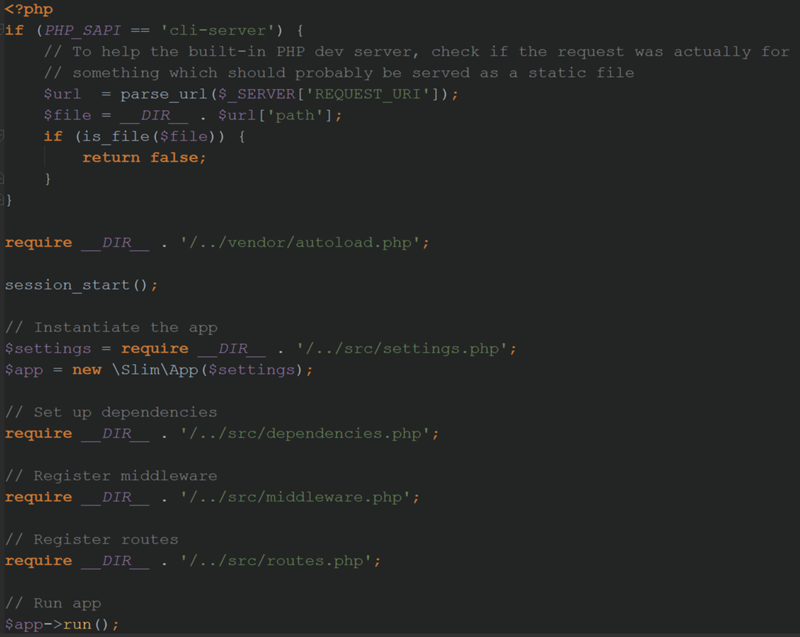NABOKV-L post 0027596, Wed, 15 Nov 2017 12:32:50 +0300
In Canto One of his poem Shade (one of the three main characters in VN’s novel Pale Fire, 1962) mentions Dr. Sutton’s light and the Great Bear:
That’s Dr. Sutton’s light. That’s the Great Bear.
A thousand years ago five minutes were
Equal to forty ounces of fine sand.
Outstare the stars. Infinite foretime and
Infinite aftertime: above your head
They close like giant wings, and you are dead. (ll. 119-124)
At the beginning of Zametki perevodchika (“Translator’s Notes,” 1957) VN mentions “the whole constellation, the entire Great Bear of rhymes” in each stanza of Pushkin’s Eugene Onegin:
Работу над переводом ЕО на английский язык я начал в 1950 г., и теперь пора с ним расстаться. Сперва ещё казалось, что при помощи каких-то магических манипуляций мне в конце концов удастся передать не только всё содержание каждой строфы, но и всё созвездие, всю Большую Медведицу её рифм. Но даже если бы стихотворцу-алхимику удалось сохранить и череду рифм, и точный смысл текста (что математически невозможно на нищем рифмами английском языке), чудо было бы ни к чему, так как английское понятие о рифме не соответствует русскому.
Но даже если бы стихотворцу-алхимику удалось сохранить и череду рифм, и точный смысл текста (что математически невозможно на нищем рифмами английском языке), чудо было бы ни к чему, так как английское понятие о рифме не соответствует русскому.
According to VN, even if the poet-alchemist managed to preserve [in his rhymed translation of EO] both the rhyme sequence and the precise meaning of the original (which is mathematically impossible in English, a language poor in rhymes), the miracle would have been in vain, because the English and the Russian concepts of rhyme are different.
At the end of his poem Shade mentions the windowpanes of Dr. Sutton’s house:
But it’s not bedtime yet. The sun attains
Old Dr. Sutton’s last two windowpanes.
The man must be—what? Eighty? Eighty-two?
Was twice my age the year I married you. (ll. 985-988)
In its unfinished form Shade’s poem has 999 lines. Kinbote (Shade’s mad commentator who imagines that he is Charles the Beloved, the last self-exiled king of Zembla) believes that, to be completed, Shade’s poem needs but one line (Line 1000, identical to Line 1: “I was the shadow of the waxwing slain”). But, like some sonnets, it also seems to need a coda (Line 1001: “By its own double in the windowpane”).
But, like some sonnets, it also seems to need a coda (Line 1001: “By its own double in the windowpane”).
At the end of Zametki perevodchika II (“Translator’s Notes. Part Two,” 1957) VN mentions tysyacha i odno primechanie (a thousand and one notes):
Так скажут историк и словесник; но что может сказать бедный переводчик? «Симилар ту э уингед лили, балансинг энтерс Лалла Рух»? Всё потеряно, всё сорвано, все цветы и серёжки лежат в лужах — и я бы никогда не пустился в этот тусклый путь, если бы не был уверен, что внимательному чужеземцу всю солнечную сторону текста можно подробно объяснить в тысяче и одном примечании.
According to VN, he would have never attempted to translate EO into English, had he not been sure that to the attentive foreigner the entire sunny side of the text can be in detail explained in a thousand and one notes.
The characters of Pale Fire include Odon (a Zemblan actor and patriot who helps the king to escape from Zembla) and his half-brother Nodo (a cardsharp and despicable traitor). Odon = Nodo = odno (neut. of odin, “one”). At the end of his Commentary Kinbote says that he may join forces with Odon (who directs a film in Paris) in a new motion picture:
Odon = Nodo = odno (neut. of odin, “one”). At the end of his Commentary Kinbote says that he may join forces with Odon (who directs a film in Paris) in a new motion picture:
God will help me, I trust, to rid myself of any desire to follow the example of the other two characters in this work. I shall continue to exist. I may assume other disguises, other forms, but I shall try to exist. I may turn up yet, on another campus, as an old, happy, healthy, heterosexual Russian, a writer in exile, sans fame, sans future, sans audience, sans anything but his art. I may join forces with Odon in a new motion picture: Escape from Zembla (ball in the palace, bomb in the palace square). I may pander to the simple tastes of theatrical critics and cook up a stage play, an old-fashioned melodrama with three principles: a lunatic who intends to kill an imaginary king, another lunatic who imagines himself to be that king, and a distinguished old poet who stumbles by chance into the line of fire, and perishes in the clash between the two figments. Oh, I may do many things! History permitting, I may sail back to my recovered kingdom, and with a great sob greet the gray coastline and the gleam of a roof in the rain. I may huddle and groan in a madhouse. But whatever happens, wherever the scene is laid, somebody, somewhere, will quietly set out—somebody has already set out, somebody still rather far away is buying a ticket, is boarding a bus, a ship, a plane, has landed, is walking toward a million photographers, and presently he will ring at my door—a bigger, more respectable, more competent Gradus. (note to Line 1000)
Oh, I may do many things! History permitting, I may sail back to my recovered kingdom, and with a great sob greet the gray coastline and the gleam of a roof in the rain. I may huddle and groan in a madhouse. But whatever happens, wherever the scene is laid, somebody, somewhere, will quietly set out—somebody has already set out, somebody still rather far away is buying a ticket, is boarding a bus, a ship, a plane, has landed, is walking toward a million photographers, and presently he will ring at my door—a bigger, more respectable, more competent Gradus. (note to Line 1000)
In his essay Pouchkine ou le vrai et le vraisemblable (1937) VN points out that, had Pushkin lived a couple of years longer, we would have had his photograph. In Chapter Two (XIV) of EO Pushkin says that we deem all people naughts and ourselves units and that the millions of two-legged creatures for us are orudie odno (only tools):
Но дружбы нет и той меж нами.
Все предрассудки истребя,
Мы почитаем всех нулями,
А единицами – себя.
Мы все глядим в Наполеоны;
Двуногих тварей миллионы
Для нас орудие одно;
Нам чувство дико и смешно.
Сноснее многих был Евгений;
Хоть он людей, конечно, знал
И вообще их презирал, —
Но (правил нет без исключений)
Иных он очень отличал
И вчуже чувство уважал.
But in our midst there’s even no such friendship:
Having destroyed all the prejudices,
We deem all people naughts
And ourselves units.
We all expect to be Napoleons;
the millions of two-legged creatures
for us are only tools;
feeling to us is weird and ludicrous.
More tolerant than many was Eugene,
though he, of course, knew men
and on the whole despised them;
but no rules are without exceptions:
some people he distinguished greatly
and, though estranged from it, respected feeling.
According to Pushkin, we all expect to be Napoleons. In his mock epic in octaves Domik v Kolomne (“A Small Cottage in Kolomna,” 1830) Pushkin says that it is a thrill to lead one’s verses under numbers and compares each line to a soldier and the poet, to Tamerlane or to Napoleon himself:
Как весело стихи свои вести
Под цифрами, в порядке, строй за строем,
Не позволять им в сторону брести,
Как войску, в пух рассыпанному боем!
Тут каждый слог замечен и в чести,
Тут каждый стих глядит себе героем,
А стихотворец. .. с кем же равен он?
.. с кем же равен он?
Он Тамерлан иль сам Наполеон. (V)
In his poem “The Nature of Electricity” (quoted in full by Kinbote in his Commentary) Shade mentions a streetlamp number nine-hundred-ninety-nine and the torments of a Tamerlane:
The light never came back but it gleams again in a short poem «The Nature of Electricity,» which John Shade had sent to the New York magazine The Beau and the Butterfly, some time in 1958, but which appeared only after his death:
The dead, the gentle dead—who knows?—
In tungsten filaments abide,
And on my bedside table glows
Another man’s departed bride.
And maybe Shakespeare floods a whole
Town with innumerable lights,
And Shelley’s incandescent soul
Lures the pale moths of starless nights.
Streetlamps are numbered, and maybe
Number nine-hundred-ninety-nine
(So brightly beaming through a tree
So green) is an old friend of mine.
And when above the livid plain
Forked lightning plays, therein may dwell
The torments of a Tamerlane,
The roar of tyrants torn in hell.
Science tells us, by the way, that the Earth would not merely fall apart, but vanish like a ghost, if Electricity were suddenly removed from the world. (note to Line 347)
In his memoir essay “Muni” (1926) Hodasevich mentions the electricity that got gradually accumulated in the air (the thunderstorm struck in 1914):
Мы переживали те годы, которые шли за 1905-м: годы душевной усталости и повального эстетизма. В литературе по пятам модернистской школы, внезапно получившей всеобщее признание как раз за то, что в ней было несущественно или плохо, потянулись бесчисленные низкопробные подражатели. В обществе — тщедушные барышни босиком воскрешали эллинство. Буржуа, вдруг ощутивший волю к «дерзаниям», накинулся на «вопросы пола». Где-то пониже плодились санинцы и огарки. На улицах строились декадентские дома. И незаметно надо всем этим скоплялось электричество. Гроза ударила в 1914 году.
The World War I began in July, 1914. Kinbote and Gradus (Shade’s murderer) were born a year later, on July 5, 1915. Shade (born on July 5, 1898) is seventeen years their senior. In a letter of October 31, 1838 (Dostoevski’s seventeenth birthday), to his brother Dostoevski twice uses the word gradus (degree):
Shade (born on July 5, 1898) is seventeen years their senior. In a letter of October 31, 1838 (Dostoevski’s seventeenth birthday), to his brother Dostoevski twice uses the word gradus (degree):
Друг мой! Ты философствуешь как поэт. И как не ровно выдерживает душа градус вдохновенья, так не ровна, не верна и твоя философия. Чтоб больше знать, надо меньше чувствовать, и обратно, правило опрометчивое, бред сердца.
Заметь, что поэт в порыве вдохновенья разгадывает Бога, следовательно, исполняет назначенье философии. Следовательно, поэтический восторг есть восторг философии… Следовательно, философия есть та же поэзия, только высший градус её!..
In the same letter to his brother Dostoevski quotes the last two lines of Pushkin’s sonnet Poetu (“To a Poet”):
Байрон был эгоист: его мысль о славе — была ничтожна, суетна… Но одно помышленье о том, что некогда вслед за твоим былым восторгом вырвется из праха душа чистая, возвышенно-прекрасная, мысль, что вдохновенье как таинство небесное освятит страницы, над которыми плакал ты и будет плакать потомство, не думаю, чтобы эта мысль не закрадывалась в душу поэта и в самые минуты творчества. Пустой же крик толпы ничтожен. Ах! я вспомнил 2 стиха Пушкина, когда он описывает толпу и поэта:
Пустой же крик толпы ничтожен. Ах! я вспомнил 2 стиха Пушкина, когда он описывает толпу и поэта:
И плюет (толпа) на алтарь, где твой огонь горит,
И в детской резвости колеблет твой треножник!..
And (the crowd) spit on the altar, where your fire burns
And shake your tripod in childish playfulness.
Koleblemyi trenozhnik (“The Shaken Tripod,” 1921) is the title of Hodasevich’s pushkinskaya rech’ (Pushkin speech). Among the martyred Russian writers mentioned by Hodasevich in his essay Krovavaya pishcha (“The Bloody Food,” 1932) are Pushkin, Lermontov, Dostoevski and Ryleev (the poet and Decembrist who died twice):
Я называю имена лишь по одному разу. Но ведь на долю скольких пришлось по две, по три «казни» — одна за другой! Разве Пушкин, прежде чем был пристрелен, не провёл шесть лет в ссылке? Разве Лермонтов, прежде чем был убит, не узнал солдатчины и не побывал тоже в ссылке? Разве Достоевского не возили на позорной тележке и не взводили на эшафот, прежде чем милостиво послали на каторгу? Разве Рылеев, Бестужев и Гумилёв перед смертью не узнали, что есть каземат? Еще ужаснее: разве Рылеев не дважды умер?
In his autobiography Speak, Memory (1951) VN mentions a certain trail through the woods beyond Batovo:
A couple of decades after Rïleev’s execution on the bastion of the Peter-and-Paul Fortress in 1826, Batovo was acquired from the state by my paternal grandmother’s mother, Nina Aleksandrovna Shishkov, later Baroness von Korff, from whom my grandfather purchased it around 1855. Two tutor-and-governess-raised generations of Nabokovs knew a certain trail through the woods beyond Batovo as ‘Le Chemin du Pendu,’ the favorite walk of The Hanged One, as Rïleev was referred to in society: callously but also euphemistically and wonderingly (gentlemen in those days were not often hanged) in preference to The Decembrist or The Insurgent. (Chapter Three, 2)
Two tutor-and-governess-raised generations of Nabokovs knew a certain trail through the woods beyond Batovo as ‘Le Chemin du Pendu,’ the favorite walk of The Hanged One, as Rïleev was referred to in society: callously but also euphemistically and wonderingly (gentlemen in those days were not often hanged) in preference to The Decembrist or The Insurgent. (Chapter Three, 2)
In the same chapter of his memoirs VN mentions Nova Zembla (sic!) and Dostoevski:
The youngest of his sons, my great-grandfather Nikolay Aleksandrovich Nabokov, was a young naval officer in 1817, when he participated, with the future admirals Baron von Wrangel and Count Litke, under the leadership of Captain (later Vice-Admiral) Vasiliy Mihaylovich Golovnin, in an expedition to map Nova Zembla (of all places) where “Nabokov’s River” is named after my ancestor. The memory of the leader of the expedition is preserved in quite a number of place names, one of them being Golovnin’s Lagoon, Seward Peninsula, W. Alaska, from where a butterfly, Parnassius phoebus golovinus (rating a big sic), has been described by Dr. Holland; but my great-grandfather has nothing to show except that very blue, almost indigo blue, even indignantly blue, little river winding between wet rocks; for he soon left the navy, n’ayant pas le pied marin (as says my cousin Sergey Sergeevich who informed me about him), and switched to the Moscow Guards. He married Anna Aleksandrovna Nazimov (sister of the Decembrist). I know nothing about his military career; whatever it was, he could not have competed with his brother, Ivan Aleksandrovich Nabokov (1787–1852), one of the heroes of the anti-Napoleon wars and, in his old age, commander of the Peter-and-Paul Fortress in St. Petersburg where (in 1849) one of his prisoners was the writer Dostoevski, author of The Double, etc., to whom the kind general lent books. Considerably more interesting, however, is the fact that he was married to Ekaterina Pushchin, sister of Ivan Pushchin, Pushkin’s schoolmate and close friend.
Alaska, from where a butterfly, Parnassius phoebus golovinus (rating a big sic), has been described by Dr. Holland; but my great-grandfather has nothing to show except that very blue, almost indigo blue, even indignantly blue, little river winding between wet rocks; for he soon left the navy, n’ayant pas le pied marin (as says my cousin Sergey Sergeevich who informed me about him), and switched to the Moscow Guards. He married Anna Aleksandrovna Nazimov (sister of the Decembrist). I know nothing about his military career; whatever it was, he could not have competed with his brother, Ivan Aleksandrovich Nabokov (1787–1852), one of the heroes of the anti-Napoleon wars and, in his old age, commander of the Peter-and-Paul Fortress in St. Petersburg where (in 1849) one of his prisoners was the writer Dostoevski, author of The Double, etc., to whom the kind general lent books. Considerably more interesting, however, is the fact that he was married to Ekaterina Pushchin, sister of Ivan Pushchin, Pushkin’s schoolmate and close friend. Careful, printers: two “chin” ’s and one “kin.” (3.1)
Careful, printers: two “chin” ’s and one “kin.” (3.1)
On Antiterra (aka Demonia, Earth’s twin planet on which VN’s novel Ada, 1969, is set) electricity was banned after the L disaster in the beau milieu of the 19th century. The Antiterran L disaster seems to correspond to the mock execution of Dostoevski and the Petrashevskians on January 3, 1850, in our world. L is a Roman numeral that corresponds to the Arabian 50. On the other hand, as the disaster name, L seems to hint at Lermontov (the author of “The Demon”) and at Lenin (who came to power in Russia in October of 1917). In April of 1919 VN and his family left Russia forever. In his Commentary (note to Line 275) Kinbote says that John Shade and Sybil Swallow (according to Kinbote, Sybil’s maiden name Irondell comes from hirondelle, French for “swallow”) were married in 1919, exactly three decades before King Charles wed Disa, Duchess of Payn. In 1919 Shade was twenty-one and Dr. Sutton forty-two. “A wise old man,” Dr. Sutton was born in 1877, forty years before the Russian Revolution. In Ada Van Veen (the narrator and main character) says that Revelation can be more perilous than Revolution:
In Ada Van Veen (the narrator and main character) says that Revelation can be more perilous than Revolution:
Revelation can be more perilous than Revolution. Sick minds identified the notion of a Terra planet with that of another world and this ‘Other World’ got confused not only with the ‘Next World’ but with the Real World in us and beyond us. Our enchanters, our demons, are noble iridescent creatures with translucent talons and mightily beating wings; but in the eighteen-sixties the New Believers urged one to imagine a sphere where our splendid friends had been utterly degraded, had become nothing but vicious monsters, disgusting devils, with the black scrota of carnivora and the fangs of serpents, revilers and tormentors of female souls; while on the opposite side of the cosmic lane a rainbow mist of angelic spirits, inhabitants of sweet Terra, restored all the stalest but still potent myths of old creeds, with rearrangement for melodeon of all the cacophonies of all the divinities and divines ever spawned in the marshes of this our sufficient world. (1.3)
(1.3)
In his memoir essay “Muni” Hodasevich says that he and Muni lived in two worlds and that the second, invisible, world seemed to them more real than the first:
Мы с Муни жили в трудном и сложном мире, который мне сейчас уже нелегко описать таким, каким он воспринимался тогда. В горячем, предгрозовом воздухе тех лет было трудно дышать, нам все представлялось двусмысленным и двузначащим, очертания предметов казались шаткими. Действительность, распыляясь в сознании, становилась сквозной. Мы жили в реальном мире — и в то же время в каком-то особом, туманном и сложном его отражении, где было «то, да не то». Каждая вещь, каждый шаг, каждый жест как бы отражался условно, проектировался в иной плоскости, на близком, но неосязаемом экране. Явления становились видениями. Каждое событие, сверх своего явного смысла, еще обретало второй, который надобно было расшифровать. Он нелегко нам давался, но мы знали, что именно он и есть настоящий.
Таким образом, жили мы в двух мирах. Но, не умея раскрыть законы, по которым совершаются события во втором, представлявшемся нам более реальным, нежели просто реальный, — мы только томились в тёмных и смутных предчувствиях. Всё совершающееся мы ощущали как предвестия. Чего?
Но, не умея раскрыть законы, по которым совершаются события во втором, представлявшемся нам более реальным, нежели просто реальный, — мы только томились в тёмных и смутных предчувствиях. Всё совершающееся мы ощущали как предвестия. Чего?
In his memoir essay Hodasevich mentions his poem Poetu (“To a Poet,” 1908) in which he rudely disclosed Muni’s secret (Muni had secretly developed a second personality, Alexander Alexandrovich Beklemishev):
И вот однажды я оборвал всё это — довольно грубо. Уехав на дачу, я написал и напечатал в одной газете стихи за подписью — Елисавета Макшеева. (Такая девица в восемнадцатом столетии существовала, жила в Тамбове; она замечательна только тем, что однажды участвовала в представлении какой-то державинской пьесы.) Стихи посвящались Александру Беклемишеву и содержали довольно прозрачное и насмешливое разоблачение беклемишевской тайны. Впоследствии они вошли в мою книгу «Счастливый домик» под заглавием «Поэту».
Hodasevich’s poem was later included in his collection Schastlivyi domik (“The Happy Little House,” 1914). The collection’s title brings to mind Pushkin’s Domik v Kolomne. In his essay Peterburgskie povesti Pushkina (“Pushkin’s St. Petersburg Tales,” 1914) Hodasevich points out that, like Mednyi vsadnik (“The Bronze Horseman,” 1833) and Pikovaya dama (“The Queen of Spades,” 1833), “The Small Cottage in Kolomna” belongs to Pushkin’s “St. Petersburg Tales.” In “The Bronze Horseman” and in “The Queen of Spades” the main characters go mad. Hermann (the mad gambler in “The Queen of Spades”) ends up in a madhouse (in Room No. 17). Similarly, the main character of Pale Fire, Professor Botkin, is a madman who writes the Poem, Commentary, Index and Foreword (in that order) in a lunatic asylum. An American scholar of Russian descent, Professor Vsevolod Botkin went mad and became Shade, Kinbote and Gradus after the tragic death of his daughter Nadezhda (Hazel Shade of Kinbote’s Commentary). In a letter of Oct. 31, 1838, to his brother Dostoevski says that it is sad to live without nadezhda (hope) and compares himself to the Prisoner of Chillon (the hero of Byron’s poem translated into Russian by Zhukovski) who is not visited by the paradise bird of poetry:
The collection’s title brings to mind Pushkin’s Domik v Kolomne. In his essay Peterburgskie povesti Pushkina (“Pushkin’s St. Petersburg Tales,” 1914) Hodasevich points out that, like Mednyi vsadnik (“The Bronze Horseman,” 1833) and Pikovaya dama (“The Queen of Spades,” 1833), “The Small Cottage in Kolomna” belongs to Pushkin’s “St. Petersburg Tales.” In “The Bronze Horseman” and in “The Queen of Spades” the main characters go mad. Hermann (the mad gambler in “The Queen of Spades”) ends up in a madhouse (in Room No. 17). Similarly, the main character of Pale Fire, Professor Botkin, is a madman who writes the Poem, Commentary, Index and Foreword (in that order) in a lunatic asylum. An American scholar of Russian descent, Professor Vsevolod Botkin went mad and became Shade, Kinbote and Gradus after the tragic death of his daughter Nadezhda (Hazel Shade of Kinbote’s Commentary). In a letter of Oct. 31, 1838, to his brother Dostoevski says that it is sad to live without nadezhda (hope) and compares himself to the Prisoner of Chillon (the hero of Byron’s poem translated into Russian by Zhukovski) who is not visited by the paradise bird of poetry:
Брат, грустно жить без надежды. .. Смотрю вперёд, и будущее меня ужасает… Я ношусь в какой-то холодной, полярной атмосфере, куда не заползал луч солнечный… Я давно не испытывал взрывов вдохновенья… зато часто бываю и в таком состоянье, как, помнишь, Шильонский узник после смерти братьев в темнице… Не залетит ко мне райская птичка поэзии, не согреет охладелой души…
.. Смотрю вперёд, и будущее меня ужасает… Я ношусь в какой-то холодной, полярной атмосфере, куда не заползал луч солнечный… Я давно не испытывал взрывов вдохновенья… зато часто бываю и в таком состоянье, как, помнишь, Шильонский узник после смерти братьев в темнице… Не залетит ко мне райская птичка поэзии, не согреет охладелой души…
There is a hope that, when Kinbote completes his work on Shade’s poem and commits suicide (on Oct. 19, 1959, the anniversary of Pushkin’s Lyceum), Botkin, like Count Vorontsov (the Governor of New Russia, Pushkin’s chief in Odessa and target of his epigrams, “half-milord, half-merchant, etc.”) will be “full” again.
Alexey Sklyarenko
Search archive with Google:
http://www.google.com/advanced_search?q=site:listserv.ucsb.edu&HL=en
Contact the Editors: mailto:[email protected],[email protected],[email protected]
Zembla: http://www.libraries.psu.edu/nabokov/zembla.htm
Nabokov Studies: https://muse.jhu. edu/journal/257
edu/journal/257
Chercheurs Enchantes: http://www.vladimir-nabokov.org/association/chercheurs-enchantes/73
Nabokv-L policies: http://web.utk.edu/~sblackwe/EDNote.htm
Nabokov Online Journal:» http://www.nabokovonline.com
AdaOnline: «http://www.ada.auckland.ac.nz/
The Nabokov Society of Japan’s Annotations to Ada: http://vnjapan.org/main/ada/index.html
The VN Bibliography Blog: http://vnbiblio.com/
Search the archive with L-Soft: https://listserv.ucsb.edu/lsv-cgi-bin/wa?A0=NABOKV-L
Manage subscription options :http://listserv.ucsb.edu/lsv-cgi-bin/wa?SUBED1=NABOKV-L
— ошибка PHP при проверке входа с использованием почтового запроса
Задавать вопрос
спросил
Изменено 2 года, 3 месяца назад
Просмотрено 2к раз
Я попробовал простой код для авторизации. Он отлично работает, когда я отправляю данные и даю правильный ответ на экране, но когда я загружаю его в первый раз в браузере, он отображает сообщение об ошибке:
Он отлично работает, когда я отправляю данные и даю правильный ответ на экране, но когда я загружаю его в первый раз в браузере, он отображает сообщение об ошибке:
Примечание: Неопределенный индекс: пользователь в C:\wamp\www\test\first.php в строке 14 а также Примечание: неопределенный индекс: пользователь в C:\wamp\www\test\first.php в строке 15
Не могу определить проблему.
<голова>
<center><ins class="adsbygoogle"
style="display:inline-block;width:580px;height:400px"
data-ad-client="ca-pub-1812626643144578"
data-ad-slot="8813674614"></ins> <script>(adsbygoogle=window.adsbygoogle||[]).push({});</script></center>Моя первая программа на PHP!
<тело>
E no PHP:
$_POST['cliente'];
Em resumo, apesar dos nomes dos campos serem os mesmos, no formulário e no PHP, a forma de se chamar a variável precisa ser a mesma em relação ao método ( 
